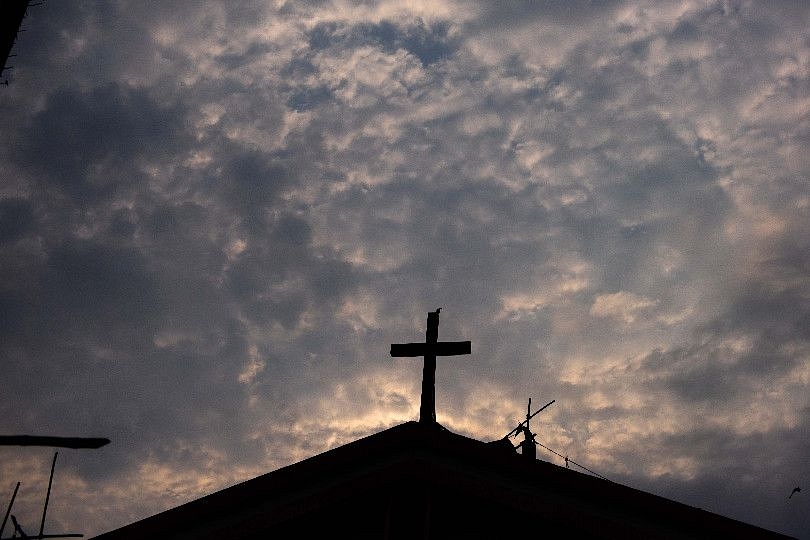Politics
Why The Madras HC Rejected A Petition For Construction Of A Bible School Near Temples In Kanyakumari
- The district collector of Kanyakumari had rejected the application to construct a Bible school near a temple. The Madras High Court has refused to question the order of the officer.

A Church in India. (Satish Bate/Hindustan Times via Getty Images)
A single judge bench of the Madras High Court has upheld the powers of local authorities in Tamil Nadu to reject applications for construction of buildings for religious purpose if such an act endangers public peace and order.
The judgement by Justice Abdul Quddhose, during a hearing of petition that challenged the rejection of a Sunday Bible school construction in Kanyakumari district, is likely to impact similar cases.
In particular, this ruling can be quoted for a couple of cases that are pending in the Madras High Court against construction of mosques and churches in the vicinity of temples.
The Madurai bench of the Madras High Court was petitioned by the Church of South India (CSI) by Bishop G Devakadashyam seeking to construct a Sunday Bible school at Kottanallur village in Kanyakumari district.
The bishop had sought permission with the Kanyakumari district officials in 2004 to construct the Bible school on his land. In 2008, Bishop G Devakadashyam received a letter from the Kumarapuram town panchayat executive officer saying that the district collector had rejected his application.
In June 2008, the bishop requested the executive officer for a certified copy of the order but the latter did not respond. Therefore, he decided to challenge the order in the High Court.
The Government counsel argued in the court that under rule 4(3) of Tamil Nadu Panchayat Building Rules 1997, no site shall be used for construction of a building intended for public worship or religious purpose without the prior approval of the collector of the district.
The rules say that the district collector can refuse permission if in his/her opinion the use of site and buildings is likely to endanger public peace and order.
Stating that the government authorities had filed a detailed response, the judge said they had gone by the views of superintendent of police who felt a bible school in the area could affect public peace and order there.
The superintendent of police had justified his views on the grounds that a CSI church and a Salvation Army church were at a 200 metres distance of the proposed Bible school. In addition, a Sastha temple was 100 feet away from the site, while another temple of Sudalaiswamy was within 75 feet.
The revenue divisional officer (RDO), Padmanabhapuram, in his report said that Hindus had objected to the conduct of Bible studies and he, therefore, recommended that permission be not granted for the school.
Finding merit in the RDO report, Justice Quddhose said reasons for rejecting the application were valid since the collector has the power to refuse permission for such constructions.
Referring to the bishop seeking an order from the court under Article 226 that empowers high court to enforce fundamental rights, the judge said the court could not interfere with the orders passed by the district collector since the reasons for rejections were not arbitrary or perverse and rejected the petition.
Support Swarajya's 50 Ground Reports Project & Sponsor A Story
Every general election Swarajya does a 50 ground reports project.
Aimed only at serious readers and those who appreciate the nuances of political undercurrents, the project provides a sense of India's electoral landscape. As you know, these reports are produced after considerable investment of travel, time and effort on the ground.
This time too we've kicked off the project in style and have covered over 30 constituencies already. If you're someone who appreciates such work and have enjoyed our coverage please consider sponsoring a ground report for just Rs 2999 to Rs 19,999 - it goes a long way in helping us produce more quality reportage.
You can also back this project by becoming a subscriber for as little as Rs 999 - so do click on this links and choose a plan that suits you and back us.
Click below to contribute.
Latest